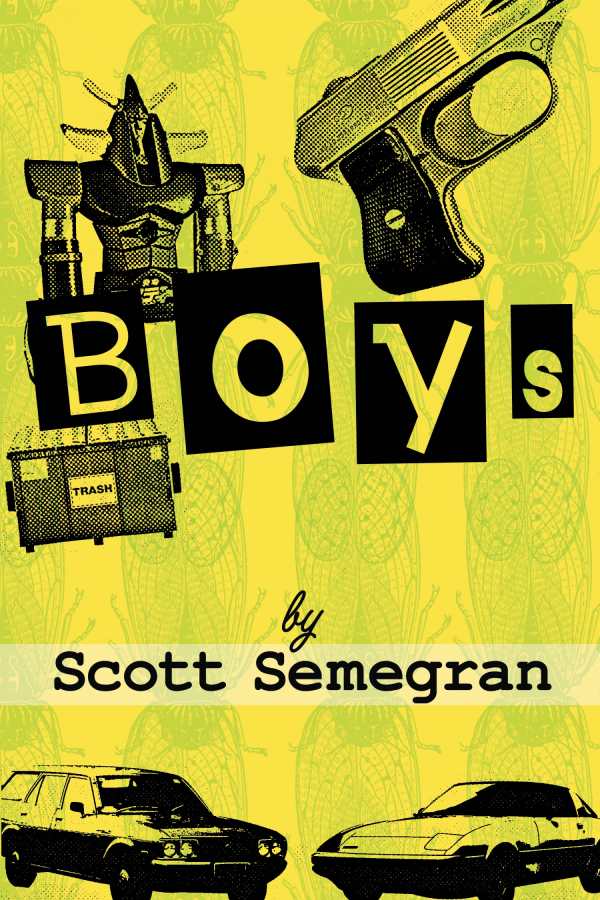Boys
Raising difficult questions of morality, this slice-of-life narrative is as heartfelt as it is entertaining.
Scott Semegran’s Boys collects trio of fascinating stories that follow a young man in three very different stages of his life: childhood, adolescence, and early adulthood. Raising difficult questions of morality, this slice-of-life narrative is as heartfelt as it is entertaining.
First, Billy deals with the typical trials and tribulations of childhood, particularly playground bullies. As an adolescent, he is determined to buy his dream car for his sixteenth birthday; to do so, he gets a job at a Greek restaurant. However, as with most teenagers, he comes to realize that money doesn’t come easily even as he learns much about the world beyond the confines of the restaurant. As an adult called Seff, Billy works a dead-end job at the Pasta Warehouse with his best friend Alfonso.
The book is interesting in its construction. The first two stories, “The Great and Powerful, Brave Raideen” and “Good Night, Jerk Face,” are relatively short; they function as introductions to the third story, “The Discarded Feast,” which takes up the bulk of the narrative. This structure works with rare skill to establish how Billy arrives into adulthood as he does.
The stories ably navigate ethical questions in a way that feels true to life. Is it okay to steal if what you’re taking would otherwise just go to waste? Is it okay to physically harm someone who has hurt you? Answers remain oblique as Billy’s choices play out on the pages.
Moments of magical realism come through, as when young Billy interacts with his action figures and they seem to speak back to him. Such departures from more straightforward stories inject appealing whimsy into an otherwise realistic narrative.
The narrative voice is distinct, enlivened by personality and humor. Lines like “Alfonso chuckled in a way that a big brother chuckles at a little brother’s misfortune, knowing that I was going through something that would build character, or some stupid shit like that” are funny and serve to break up sometimes heavy descriptions of actions and places.
Educational moments unexpectedly enrich the reading experience, such as information about the civil unrest of Jamaica and Haiti in the 1960s.
The story sometimes feels like it’s taking on too much. Many interesting plotlines arise only to be abandoned without resolution to begin new scenes.
An interesting cast of unique characters inhabits Billy’s world; each has their own worldview, and their voices are easily distinguishable from one another. However, they do not develop across the work. The book’s resolution is abrupt, and many narrative arcs go unresolved.
Boys is compellingly realistic fiction. Its fantastic details, interesting construction, and humor make it worth the read.
Reviewed by
Gregory A. Lowe
Disclosure: This article is not an endorsement, but a review. The publisher of this book provided free copies of the book and paid a small fee to have their book reviewed by a professional reviewer. Foreword Reviews and Clarion Reviews make no guarantee that the publisher will receive a positive review. Foreword Magazine, Inc. is disclosing this in accordance with the Federal Trade Commission’s 16 CFR, Part 255.

